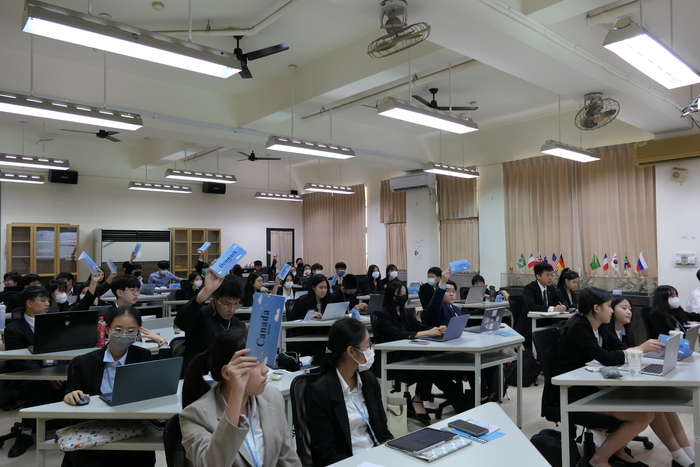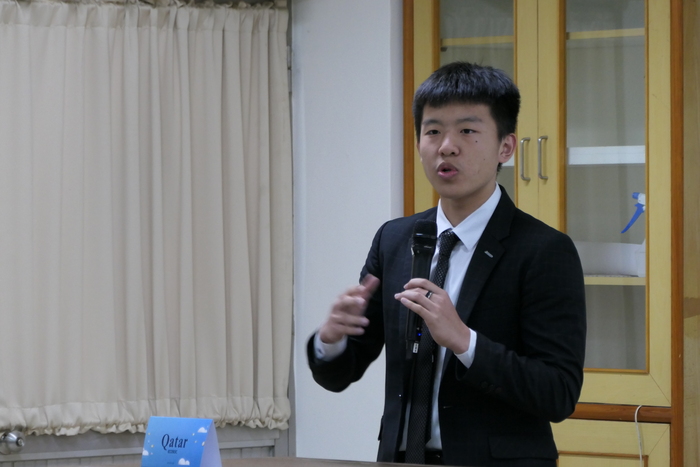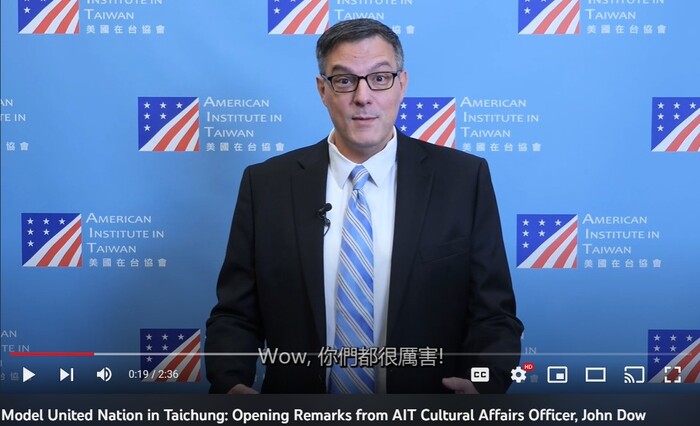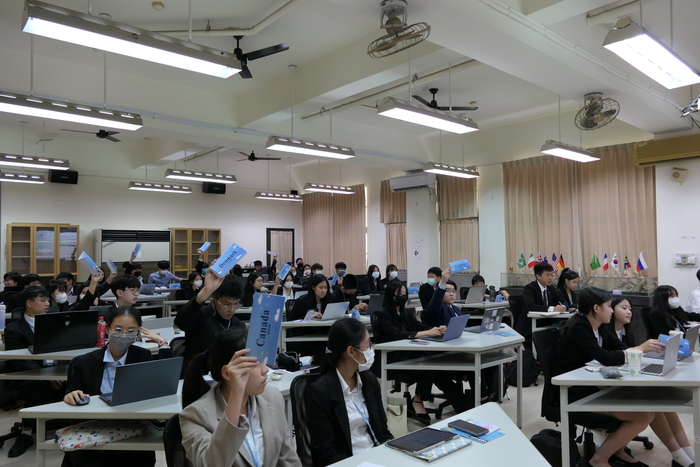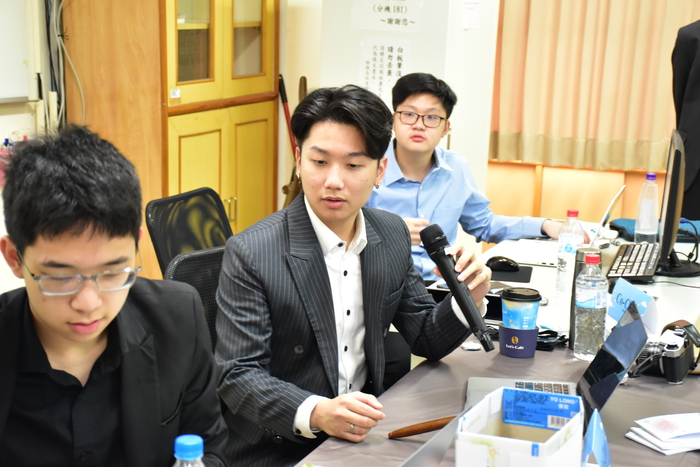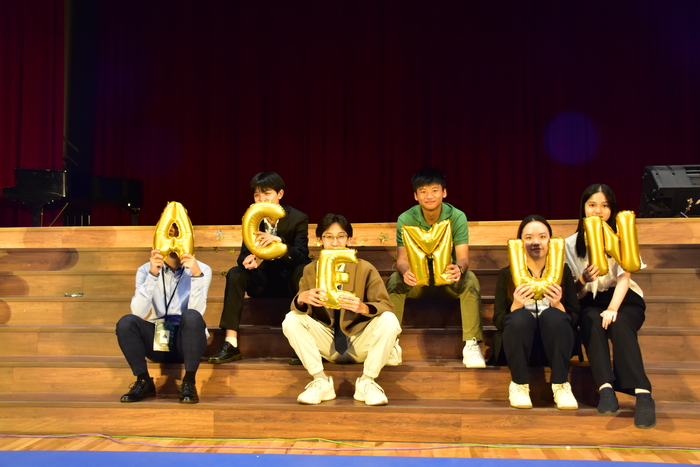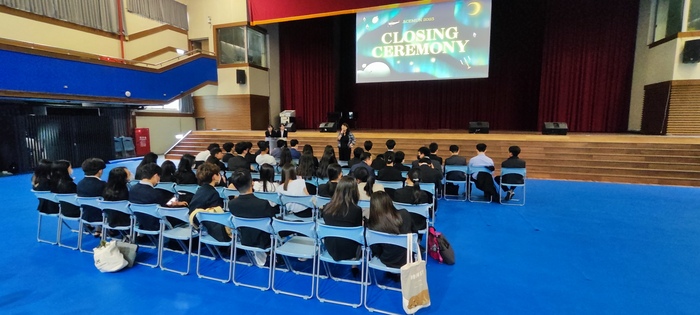本校模擬聯合舉辦模擬國際會議,匯集各地優秀青年關心少數族群議題
本校模擬聯合國(TCSSH ACEMUN)於8/12及8/13舉辦ACEMUN 2023模擬聯合國會議。共計有來自建國中學、北一女中、師大附中、新竹高中、嘉義女中及高雄女中等北中南25間學校學生代表44人參加。 本次會議是本校因疫情相隔兩年多後再次舉辦,本校模擬聯合國成員雖然在人數與經驗上都嫌不足,仍認真籌備及規劃,希望能帶給參與的各校代表一場豐富的體驗。 本次的會議中除了能看到代表們熟稔地使用英文及議事規則導論個國家少數族群的處境,也能看到各個學校代表之間經驗分享,讓參與的代表及工作人員都收穫良多。
本次活動的成功要感謝本校各處室在場地及設備上的大力協助。 也要感謝美國在台協會(AIT)文化官John Dow雖然無法親自到場,仍錄製影片與參與的代表們分享他的模聯經驗以及給學生的鼓勵。 本校吉他社及熱舞社的同學們於第一天的晚會中參與節目表演,令參加代表們印象深刻。 本校新任歐靜瑜校長也親自到場觀摩會議進行的狀況,並於閉幕式時用英文勉勵所有的代表及工作人員。
以下為陳秉昇及謝宇璿同學撰寫之英文新聞稿:
Day 1
The United Nations Economics and Socials Council (ECOSOC), along with all its participating delegates, are tasked with improving the benefits of indigenous minority groups and promoting gender equality through reaching international consensus in this year’s Ace Model United Nations Conference. However, as the committee embarks on its quest of pursuing equality amongst genders and indigenous minorities, delegates are presented with a dilemma; how do we draw the line between achieving universal equality and respecting local governments and religions?
For day one, the delegates have decided to prioritize their attention on improving women’s rights on a global scale, as the house believes that the issue regarding women's rights affects a larger portion of the global population. As per usual, the first session opened with delegates sharing their country stances and showing off research data, including numerous past UN resolutions. And yet, these rights towards women are still commonly being violated in many regions; take the violation of the Palestinian women’s rights by the Israeli government for example, as the delegate of Tunisia has pointed out. “These women were deprived of the right to education and political participation” said the delegate of Tunisia. Naturally, the delegate of Israel denied such accusations, claiming it is due to the Palestinian in Israel not having Israeli citizenship. From this point on, division of stances within this committee had become rather obvious, paving the way for delegates to eventually form blocs.
Session two followed after a short suspension of the meeting. In this session, the whole delegation had separated into two blocs: Islamic countries led by the delegate of Tunisia, and mainly European countries led by the United State and Israel. The bloc led by Tunisia mainly focuses on a specific ethnic women’s right, as well as other subtopics, which have claimed to have been greatly violated by local governments. On the other hand, the bloc led by the U.S. prioritizes reviewing, reciting, emphasizing, refining the past actions and conventions. After a long debate, the delegations of the committee have come to recognise the flaw under the status quo. Conventions and treaties have been recited and emphasized, however, they believe that the existing problems have all been dealt with in an acceptable manner. Moreover, the bloc led by Tunisia has stated that they strongly value the principle of national sovereignty. Thus, they believe ethnic issues should be addressed under the premise of respecting the local governments and customs.
Finally, seeing as there is not yet a consensus nor a completed draft resolution, debate regarding women’s rights was postponed for tomorrow. As a result, focus was shifted to the controversies regarding the lack of representation of indigenous people for decision-making roles. The delegate of the United Kingdom believes such roles are vital to secure and to ensure the rights of the indigenous, therefore, well-rounded procedures for indigenous people to be introduced to such roles is necessary. To conclude, through the combined efforts of the house delegates have reached certain progress in resolving the issues on hand.
Day 2
The second day of the AceMUN conference opens as the committee places its focus on women's rights and the introduction of Draft Resolution 1.1, signed and brought forward by the delegates of India, Kazakhstan, Laos, Madagascar, Nigeria, Qatar, and Tunisia. This draft resolution stood by reaffirming past efforts by the UN, including several past ECOSOC resolutions on the support for Palestinian women and the right of Palestinian people to self-determination. Debate on this draft resolution was intense and saw the delegations of countries such as Tunisia, India, and the United States strongly expressing their concerns on the rights of Palestinian women. Regardless, the delegate of Israel stood its ground firmly. Therefore, due to the lack of consensus, discussion on this draft resolution was put to a halt, and the introduction of Draft Resolution 1.2 was favored by the House.
Draft resolution 1.2 is signed and submitted by the delegations of Afghanistan, Belgium, Canada, Croatia, Denmark, Israel, Italy, Mexico, the Republic of Korea, Sweden, the United Kingdom, the United States, and Zimbabwe is a draft resolution that places its emphasis on women's and girls’ equality in education, accessible healthcare, and salary, as well as preventing violence against females. The draft resolution aims to reinforce women’s rights by upholding its principle and beliefs. Moreover, the provision of the resolution proves the commitment and effort to ensuring women’s rights. The endorsement of these principles has set the stage for collaborative efforts to uplift women's rights globally. To better fit the benefits of participating member states, this draft resolution underwent several amendments.
Discussion over the rights of indigenous people was brought forward again in the fourth and final session, and Draft Resolutions 2.1 and 2.2 were introduced. Draft Resolution 2.1, signed and submitted by the delegations of the United States, Qatar, Kazakhstan, Zimbabwe, Israel, and Tunisia, proposes to ensure the rights of indigenous people by recognizing the importance of indigenous people in the discussion of the international agenda and stressing the importance of the indigenous, including women and youth, in decision-making processes.
Draft Resolution 2.2, signed and submitted by the delegations of Afghanistan, Argentina, Belgium, Canada, Croatia, Denmark, Liberia, Mexico, Nigeria, New Zealand, the Republic of Korea, Sweden, and the United Kingdom, is driven by the principle of human rights and self-determination. This draft resolution emphasizes the importance of the right to protection of the territories and the land of the indigenous. Moreover, the draft resolution also recognizes the historical injustice and ongoing marginalization of the indigenous people. In short, the critical factor in this draft resolution is to empower the indigenous people within the United Nations. Additionally, it also evaluates the engagement of indigenous people during decision-making processes, as a measure to ensure their voices are being heard. Note that all of the above draft resolutions brought forward are by the mandate of ECOSOC.
Through thorough discussions and debates, Draft Resolution 1.2 regarding equality in the treatment of women and Draft Resolution 2.1 regarding the rights of indigenous people were passed by the committee of ECOSOC. In conclusion, this year's AceMUN conference is a success in terms of the efforts and progress the delegates have made in pursuit of equality and advancement in human rights.

